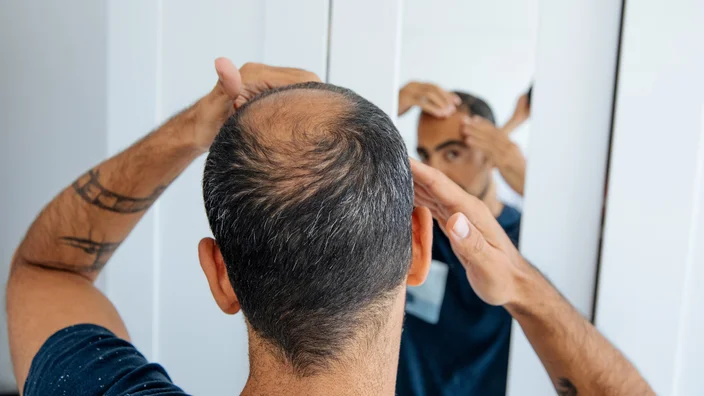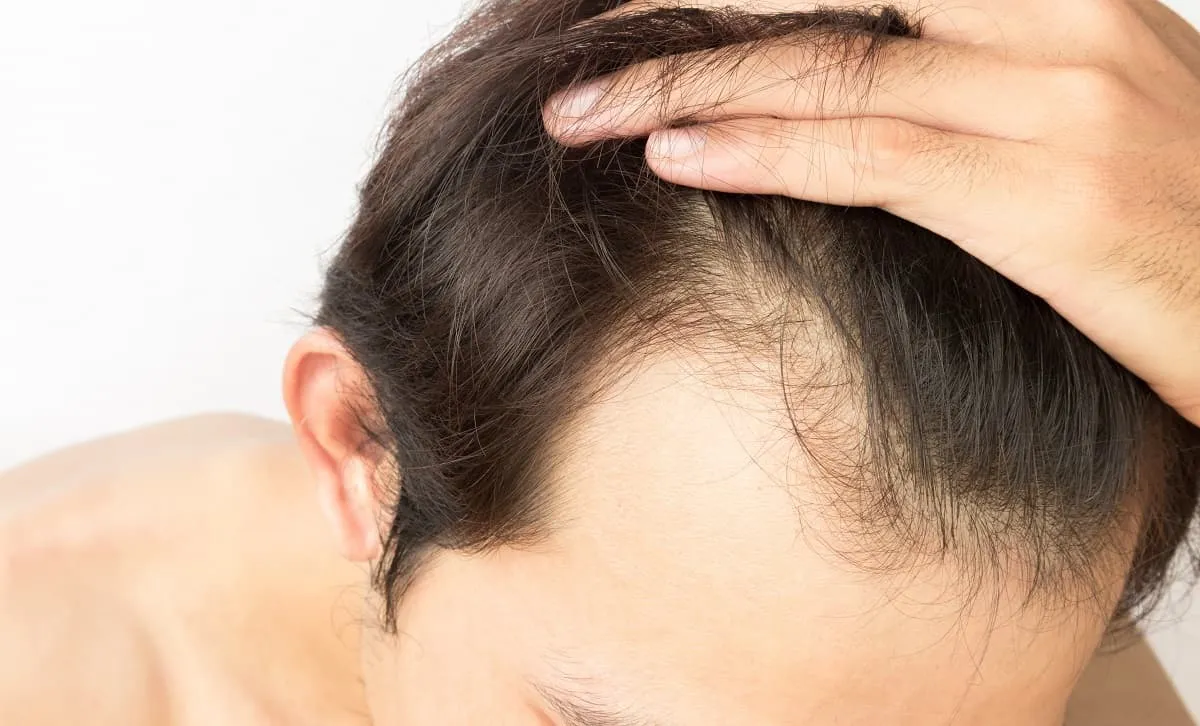Male pattern baldness, or androgenic alopecia, is a common condition among men, with various factors contributing to its onset. Dr. Rena Malik, in a recent YouTube video, explores the connection between testosterone replacement therapy (TRT) and hair loss.
She highlights that while TRT can potentially increase the risk of hair loss, it primarily affects men who are genetically predisposed to baldness. Factors such as stress, poor nutrition, medications, and grooming habits can also influence hair loss, but genetics play a significant role.
Testosterone, a hormone crucial for secondary sexual characteristics in men, undergoes conversion into dihydrotestosterone (DHT) daily. DHT can bind to hair follicles over time, weakening them and leading to hair loss.
Malik emphasizes that while DHT plays essential roles in development, its excess can contribute to issues like an enlarged prostate and, in some cases, hair loss, especially in genetically susceptible individuals.

Research on transgender men undergoing TRT as part of medical transitioning shows that between 5 and 17 percent experience some degree of hair loss in the first year. However, most cases are mild, suggesting varying individual susceptibilities.
Malik clarifies that TRT can potentially accelerate male pattern hair loss in those already predisposed, rather than causing it outright. She advises individuals concerned about hair loss to consult dermatologists for proper evaluation and potential treatments.
Despite the risk of accelerated hair loss with TRT, Malik underscores the broader benefits of testosterone therapy for those who require it medically. She reassures viewers that while hair loss may occur, it affects a minority of users and can often be managed with appropriate medical advice and interventions.
Understanding genetic predispositions and consulting healthcare professionals are crucial steps in addressing concerns about hair loss in the context of testosterone replacement therapy.
